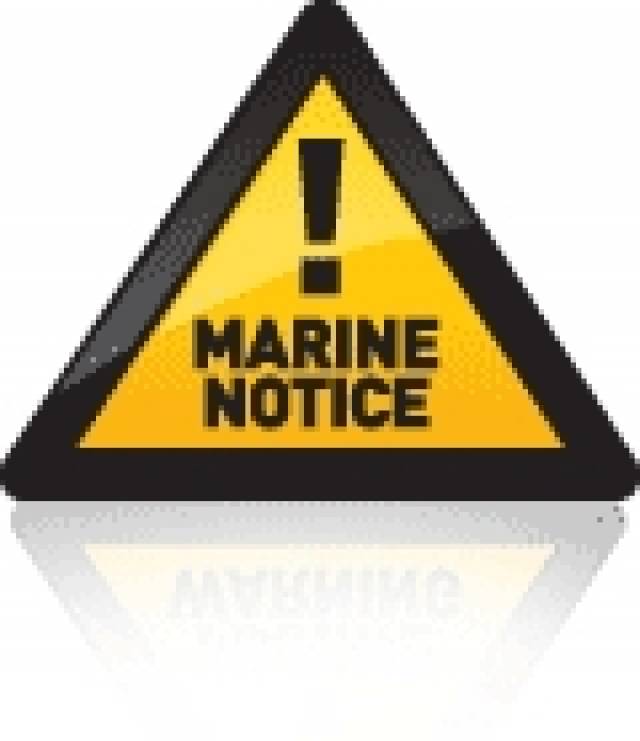#MarineNotice - Marine Notice No 3 of 2014 provides guidance on the implementation of the Manila Amendments to the International Convention on Standards of Training, Certification and Watch-keeping for Seafarers 1978, as amended (STCW), with respect to Electro-technical Officers (ETO) and Electro-technical Ratings (ETR).
The Manila Amendments to the STCW Convention and Code were adopted on 25 June 2010, marking a major revision of the STCW Convention and Code. The 2010 amendments entered into force on 1 January 2012 and introduced two new levels of certification for electro-technical personnel.
- ETO introduced as a new grade of officer at the operation level STCW Reg III/6
- ETR introduced as a new grade of rating at the support level STCW Reg III/7
As of 1 July 2013, new entrants commencing training must do so in accordance with the new Manila provisions. All training programs must be in accordance with the new Manila requirements. From 1 January 2017 all certificates must meet STCW Manila requirements.
New entrant ETOs that commenced training after 1 July 2013 that meet all the applicable requirements and pass a Marine Survey Office oral examination will be issued with a certificate of competency valid for five years from the date of issue. Further details will be included in the Examination Directions published by the Department of Transport, Tourism and Sport.
ETOs currently serving at sea may be considered to have met the requirements of STCW if they have served in a relevant capacity on board ship for a period of not less than 12 months within the five year period preceding 1 January 2012 and meet the standards of competence specified in the STCW Code.
The Marine Survey Office will compare the standards of competence of each applicant for ETO certificate of competency under this section with those specified in section A-III/6 of the STCW Code and determine the need, if any, for updating training to be carried out. Assessments will be done on an individual or case-by-case basis. Candidates should allow sufficient time for the assessment to be carried out. All applicants must:
- Complete an application form (EXN 3) and submit the relevant documents;
- Meet the medical fitness and eyesight requirements of the Merchant Shipping (Medical Examination) Regulations, and produce a valid certificate;
- Have at least 12 months documented sea service in the five year period preceding 1 January 2012 as ETO on board ship (details of the type of ships, size, electrical systems on board including electrical generation systems, hotel systems, communications systems, GMDSS and bridge navigation systems should be provided);
- Complete an approved Electro Technical Officer Training Record Book; and
- Have completed approved training or refresher training in:
- Proficiency in personal survival techniques (Table A-VI/1-1);
- Proficiency in fire prevention and firefighting (Table A-VI/1-2);
- Proficiency in elementary first aid (Table A-VI/1-3);
- Proficiency in personal safety and social responsibilities (Table A-VI/1-4);
- Proficiency in survival craft and rescue boats other than fast rescue boats (Table VI/2-1);
- Proficiency in Advanced Fire Fighting (Table A-VI/3);
- Proficiency in Medical First Aid (Table VI/4-1);
- Proficiency in Security awareness training (Table A-VI/6-1);
- Human Element Leadership and Management (HELM).
When comparing standards of competence the following will be required:
- An appropriate third level qualification in marine electronics, electrical or communications;
- GMDSS Radio Maintenance Course or equivalent;
- GMDSS GOC (General Operators Certificate);
- High Voltage (Management Level) course or equivalent;
- Pass a Marine Survey Office oral examination.
Electro-technical officers applying for certificates of competency will be required to have High Voltage (HV) training whether or not they intend to work on ships with HV equipment. A HV system (over 1000V) is where voltage is generated and distributed at high voltage or transformed to and distributed at high voltage. It does not include systems where high voltage is utilised locally, eg ignition systems, radio transmission, radar or other navigational equipment.
HV courses previously undertaken prior to 1 July 2013 do not need to be approved but applicants must provide documentary evidence confirming the course covered at least the following topics:
- The hazards associated with High Voltage systems;
- Arrangement of High Voltage systems and their protective devices;
- Safety procedures related to High Voltage systems;
- Immediate actions to be taken under fault conditions;
- The functional, operational and safety requirements for a marine high-voltage system;
- Assignment of suitably qualified personnel to carry out maintenance and repair of high-voltage switchgear of various types;
- Taking remedial action necessary during faults in a high-voltage system;
- Producing a switching strategy for isolating components of a high-voltage system;
- Selecting suitable apparatus for isolation and testing of high-voltage equipment;
- Carrying out a switching and isolation procedure on a marine high-voltage system, complete with safety documentation; and
- Performing tests of insulation resistance and polarisation index on high-voltage equipment.
Meanwhile, electro-technical rating certificates will not be issued unless there is significant demand for them from the industry.
































































